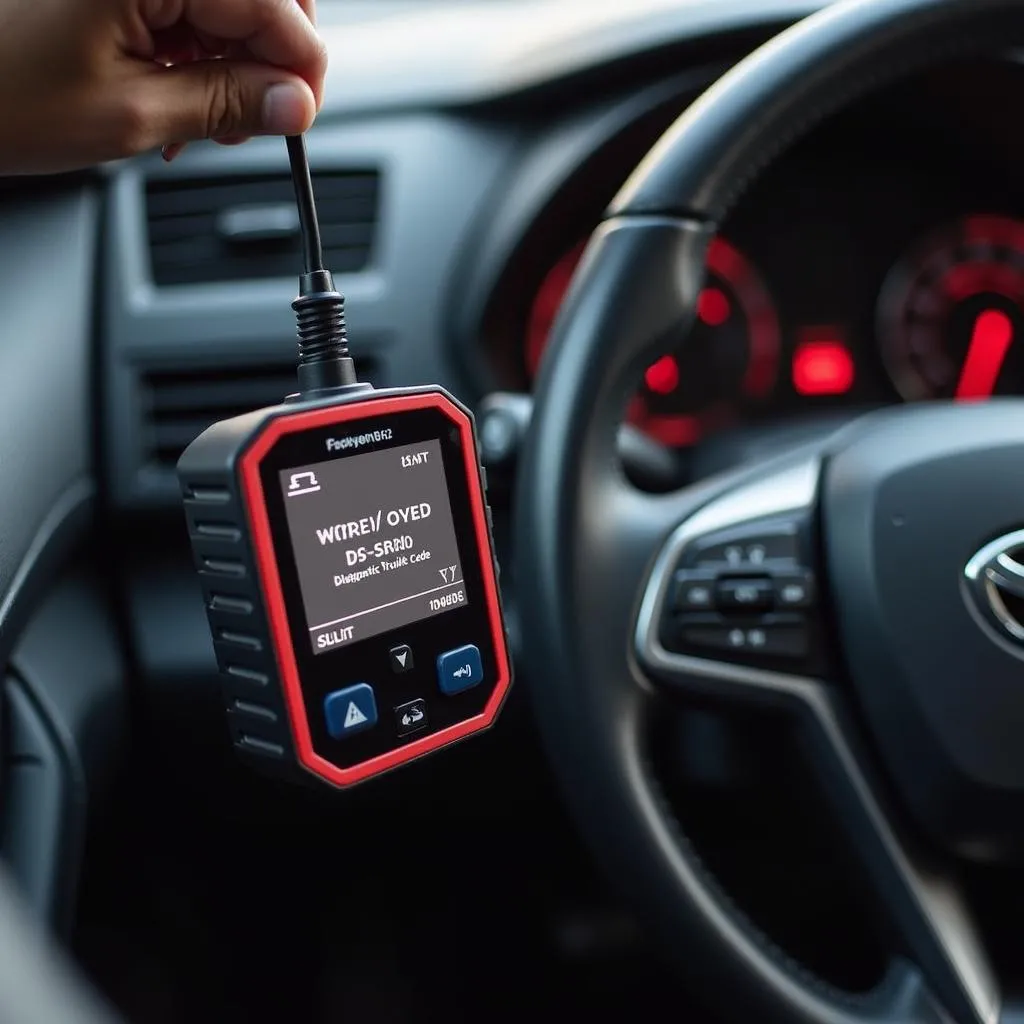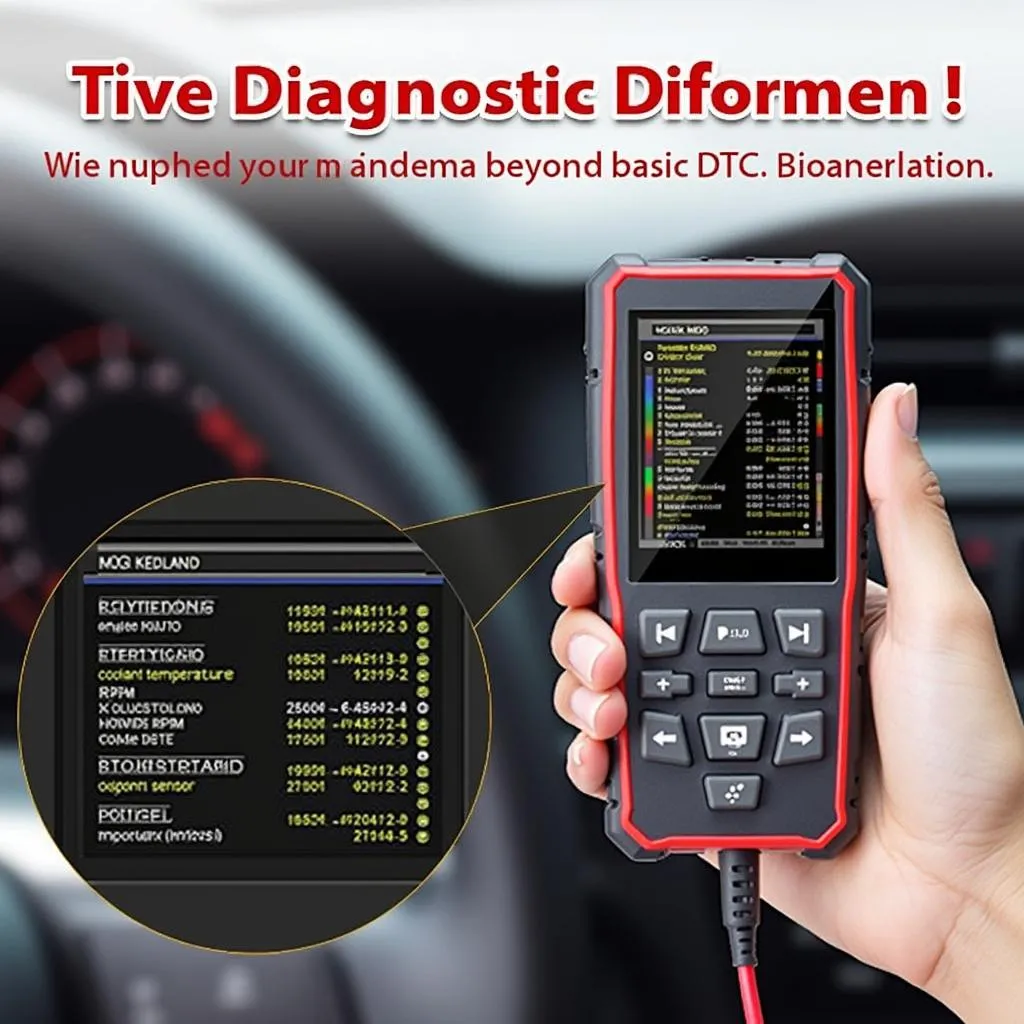Imagine this: you’re driving down the Pacific Coast Highway, California, top down, wind in your hair, when suddenly – your check engine light pops on. That carefree feeling? Gone, replaced by a pit in your stomach. What’s wrong? How serious is it? Do you need a mechanic in the middle of nowhere? This is where scan tools come in, acting as your car whisperer, translating cryptic codes into understandable diagnoses.
But here’s the catch: not all scan tools are created equal. Just like you wouldn’t use a wrench to hammer a nail, different automotive issues require different types of scan tools. So, whether you’re a DIY mechanic or just want to understand your car better, understanding the different types of scan tools is crucial. Let’s dive in.
Decoding the Diagnostic World: Understanding the Need for Scan Tools
For professional mechanics at a bustling auto repair shop in Chicago, scan tools are as vital as a stethoscope is to a doctor. These tools provide a window into the complex world of a vehicle’s electronic control unit (ECU), the brain behind modern car systems. Without them, diagnosing a car problem would be like navigating a labyrinth blindfolded.
From a technical standpoint, scan tools retrieve Diagnostic Trouble Codes (DTCs) stored in the ECU. These codes, often a jumbled mess of letters and numbers to the untrained eye, pinpoint malfunctions in the engine, transmission, brakes, airbags, and more.
Unveiling the Arsenal: 3 Types of Scan Tools
Just as a seasoned locksmith possesses an array of tools for different locks, mechanics utilize various scan tools tailored to specific tasks. Here’s a breakdown:
1. Code Readers: The Entry-Level Essentials
Think of code readers as the basic toolkit in the world of car diagnostics. These pocket-friendly devices are perfect for DIY enthusiasts or anyone wanting to decipher those pesky check engine lights without breaking the bank. Code readers connect to your car’s OBD (On-Board Diagnostics) port, usually located under the dashboard, and display the DTCs.
What they do:
- Read and display DTCs
- Clear DTCs and reset the check engine light
- Sometimes offer basic definitions of DTCs
Limitations:
- Don’t provide in-depth data
- Can’t perform advanced functions like bi-directional control or programming
Perfect for: Everyday drivers, DIYers, and budget-conscious car owners.
 Code reader plugged into a car's OBD port
Code reader plugged into a car's OBD port
2. OBD2 Scanners: The Versatile Multitaskers
Stepping up the diagnostic ladder, we have OBD2 scanners. These tools provide a broader range of information compared to basic code readers, acting like a multi-tool for car maintenance. They are essential for DIYers tackling more involved repairs and a must-have for any serious home mechanic.
What they do:
- Read and clear DTCs
- Display live data streams from various sensors
- Perform some bi-directional controls (e.g., turning on the fuel pump for testing)
- Might offer advanced features like ABS bleeding or airbag system resets
Limitations:
- Advanced features vary greatly between models
- Might not support all car makes and models
Perfect for: DIY enthusiasts, home mechanics, and those who want more in-depth diagnostics.
 OBD2 scanner displaying live sensor data on screen
OBD2 scanner displaying live sensor data on screen
3. Professional Scan Tools: The Diagnostic Powerhouses
Now, imagine a mechanic at a high-end German car repair shop in Munich, tackling complex engine management issues on a luxury sedan. They need the most powerful tools available – professional scan tools. These tools are the top dogs of the diagnostic world, offering unparalleled depth and functionality.
What they do:
- All the functions of code readers and OBD2 scanners
- Advanced programming and coding capabilities
- Bi-directional control over most vehicle modules
- Access to manufacturer-specific data and diagnostics
- Often come with software for detailed analysis and reporting
Limitations:
- Expensive
- Require significant training and expertise to use effectively
Perfect for: Professional mechanics, dealerships, and specialized repair shops.
Interested in finding a budget-friendly scan tool that suits your needs? Check out our article on the best budget car scan tools.
Choosing the Right Tool for the Job
Just like you wouldn’t use a sports car to haul lumber, selecting the right scan tool depends on your needs and expertise.
- Occasional Check Engine Light Decoder? A basic code reader is your best bet.
- Weekend Warrior Mechanic? An OBD2 scanner will be your trusty sidekick.
- Professional Grease Monkey? Professional scan tools are your go-to arsenal.
Beyond the Basics: Exploring Related Diagnostic Queries
Now that you’re familiar with the main types of scan tools, let’s delve into some common questions that car owners often have:
- Can a scan tool diagnose all car problems? While incredibly powerful, scan tools can’t diagnose everything. Mechanical issues, like a worn clutch or a failing water pump, often require physical inspection.
- Do I need a scan tool with PATS programming capability? If you’re dealing with immobilizer systems (common in newer cars) or key programming, a scan tool with PATS programming capability is essential.
- What about scan tools specifically designed for anti-theft systems? For enhanced security and diagnostics related to your car’s anti-theft system, specialized scan tools for anti-theft systems are available.
Need help navigating the world of top-rated automotive scan tools? Our website provides comprehensive reviews and comparisons to help you make an informed decision.
Need Expert Assistance? We’re Just a Message Away!
Feeling overwhelmed by the world of diagnostic tools? Don’t worry, we’ve got your back! Our team of automotive experts is available 24/7 to provide personalized guidance and support. Contact us via WhatsApp at +84767531508 for assistance with:
- Choosing the right scan tool for your needs
- Installing and using diagnostic software
- Troubleshooting any issues you might encounter
Remember, knowledge is power when it comes to car maintenance. Equip yourself with the right tools and information to keep your vehicle running smoothly for miles to come!


